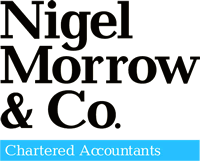Research & Development - the forgotten tax relief
As tax advisers for startup companies, we are always looking for ways to improve our clients’ financial position.
R&D tax credit relief can minimise corporate tax bills and improve cashflow, which can make all the difference to startup companies.
As the startup scene in Northern Ireland starts to gather pace (http://www.showcaseconf.com as just one example), successful entrepreneurs will look for every available advantage.
How does it work?
The relief allows SME companies to claim 175% of qualifying expenditure as a deduction against profits. Simply put, if £100K is spent on R&D staffing costs, the company will claim a deduction of £175K. The good news doesn’t stop there however – if this generates a loss in any given year, the company may crystallise the loss and receive payment from Revenue.
Qualifying expenditure typically covers staffing costs, software and research costs.
What constitutes Research & Development?
A project will be considered R&D if it, " seeks, through the resolution of scientific or technological uncertainty, to achieve an advance in overall knowledge or capability in a field of science or technology, not a company’s own state of knowledge or capability ".
Essentially, innovative startups (particularly in the tech sector) that are designing new technology to fill a gap in their market may qualify for this relief. Designing technology to duplicate existing processes can also qualify for this relief, provided your product / service performs in a fundamentally different way to the competition.
How can we help?
*We can assist our clients by performing assessments of their suitabitity and potential success of claiming R&D tax credits.
*We also prepare/review claims prior to submissions, and carry out retrospective reviews for companies with a history of claiming this relief.
If you would like to find out more about the topics covered in this article, please contact Nigel Morrow.


